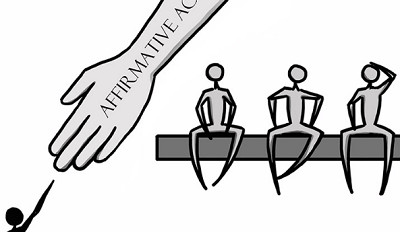
‘Pass Affirmative Action Law for equal representation’
Affirmative Action describes policies that support members of a disadvantaged group through education, employment or housing who have suffered past discrimination.
Historically and internationally, support for Affirmative Action has sought to achieve goals such as bridging inequalities in employment and salary, increasing access to education, promoting diversity and redressing apparent past wrongs, harms or hindrances.
The nature of Affirmative Action policies varies from region to region. Some countries use a quota system, whereby a certain percentage of government jobs, political positions and school vacancies must be reserved for members of a certain group.
In Ghana, Affirmative Action was first used by Dr Kwame Nkrumah through the Representation of People’s Law in the middle of 1960, and this allowed 10 women to go into Parliament unopposed.
Status of draft Affirmative Action Bill
In 2011, the Ministry of Gender, Children and Social Protection (MoGCSP), in collaboration with stakeholders drafted an Affirmative Action Bill which was aimed at bridging the gender inequality gap in decision-making positions in the country.
The bill, which was in Parliament in 2016, could not be passed into law. Currently, the bill is back in Parliament awaiting its passage. However, according to gender activists, if nothing is done to shore up women’s decision-making participation in the country, women will continue to be at a disadvantage when it comes to public service.
At a meeting with selected journalists to update them on why the Affirmative Action bill has be passed into law, the Convenor of the Women’s Manifesto Coalition.
Some provisions in Ghana’s AA Bill
Mrs Harisson, who is also the Resource Mobilisation Manager of ABANTU for Development, said the objective of Ghana’s Affirmative Action bill was to ensure the progressive achievement of gender equality in political, social, economic, cultural and educational life with periodic reviews.
The bill also stipulates that gender imbalance in the public and private sector is to be addressed and different treatments should not be given to different genders.
It also deals with affirmative action and gender equality in governance institutions as it requires governments to ensure appropriate representation of women in governance and decision-making positions.
It calls for 40 per cent quota for recruitment of women in the security services, including the police, prisons, fire service, customs, immigration and the Bureau of National Investigation.
Why the need for an AA law in Ghana
In Ghana, government after government continue to appoint less women into decision-making positions. When the Fourth Republican Constitution came into effect with Flt Lt Jerry John Rawlings as President from 1992 to 1996, there was a 15 per cent representation of women in government and the figure dropped to 13.58 per cent during his second term, which was from 1996 to 2000.
During the term of former President John Agyekum Kuffour, from 2000 to 2004 and 2004 to 2008, there was an 11.43 per cent representation of women in both terms.
Former President John Evans Atta Mills, during his tenure from 2008 to 2010, had 18.35 per cent women representation in government.
Former President John Mahama, from 2010 to 2016, had a 17.86 per cent representation of women in government.
The current government, headed by President Nana Addo Dankwa Akufo-Addo, as of April 2019, has a 19.24 per cent women representation.
Current situation
A breakdown of women representation in the current government shows that as of April 2019, out of 124 ministers, only 24 were women, which is a 19.35 per cent representation.
A breakdown of the ministers shows that there are nine female sector ministers out of a total of 36 and seven female deputy sector ministers out of 50.
There are only two female regional ministers as against 14 men and three female deputy regional ministers as against 14 men.
There are 38 females in Parliament as against 238 males.
Also, 24 out of 56 ambassadors were women as of April 2019.
At the Council of State, there are 20 men as against five women.
To this end, gender activists are pushing for the passage of the bill into law so that women and other vulnerable groups would be proportionately represented in decision making positions.
